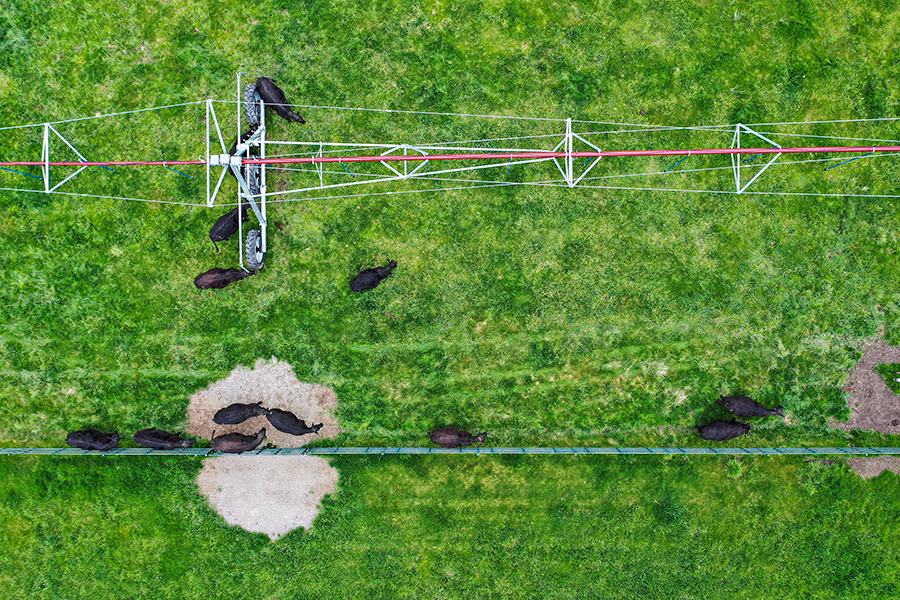Bill to Settle CSKT Water Rights Gains Senate Committee Support
U.S. Sens. Daines and Tester tout $1.9 billion resolution, which Interior official calls ‘best course of action’
By Tristan Scott
A $1.9 billion measure to help settle a long-disputed water rights deal between the state and federal governments and the Confederated Salish and Kootenai Tribes received its first congressional hearing on June 24, with both of Montana’s U.S. senators and a senior Interior Department official praising the legislation as the best course of action to avoid costly litigation, modernize outmoded irrigation systems in the Flathead Valley and mitigate historic damage to natural resources.
Introduced last December by U.S. Sen. Steve Daines, R-Montana, and co-sponsored by U.S. Sen. Jon Tester, D-Montana, the Montana Water Rights Protection Act is the product of hard-fought negotiations that have dragged on for years, requiring the CSKT to permanently relinquish 97 percent of its off-reservation water claims across Montana, including all of those in the Flathead Valley.
The version of the bill presented this week to the U.S. Senate Indian Affairs Committee, which both Daines and Tester serve on as members, includes a $1.9 billion price tag to settle the Tribes’ federal damage claims, making it the most expensive bill associated with an American Indian water rights settlement in history. The costs associated with the bill would help rehabilitate the Flathead Indian Irrigation Project (FIIP), a federally established network of diversion works, canals and other infrastructure that serves 127,000 acres of agricultural land, and which has fallen into varying degrees of disrepair. And the bill would give Lake and Sanders counties $10 million for road infrastructure.
To that end, both Daines and Tester billed the legislation as an infrastructure and jobs bill, even though its primary purpose is to resolve thousands of water rights claims, removing the threat of litigation while quantifying the Tribes’ water rights and providing assurance to all water users, both tribal and non-tribal.
In exchange for the benefits, the Tribes would waive and release all claims related to water rights.
At the hearing, Department of the Interior Assistant Secretary Tim Petty commended tribal and state officials for bringing “significant leadership” to the negotiating table and said the administration supports the level of funding. Petty said benefits of the bill include the creation of more than 5,000 temporary construction jobs and 500 permanent positions to modernize critical infrastructure.
According to Petty, the bill is the administration’s preferred course of action as compared to the alternative, which he said could involve years of “protracted, divisive litigation.”
During the hearing, Daines emphasized why the bill is necessary and how it complies with both the state and the U.S. constitutions, stressing that without the legislation Montana’s agriculture economy could face a $1.3 billion hit, a significant loss of jobs, and would leave Montana’s farmers and ranchers with uncertainty.
Tester, who first introduced his own version of the bill in 2016, said he appreciates that the water compact has gained bipartisan support, particularly as it provides certainty for water users and boosts economic development in Northwest Montana.
“This moment has been decades in the making,” Tester said. “It does great things for building infrastructure both inside the reservation and outside.”
During the 2015 Montana Legislature, state lawmakers endured a firestorm of controversy before ratifying the CSKT water compact, which was designed to settle and avoid thousands of water-rights disputes between tribal and non-tribal users that would have carried exorbitant litigation costs; however, the measure still requires approval from both federal and tribal governments, which until now has proved elusive.
Tribal leaders expressed support for the proposed legislation, which in addition to ratifying the compact also settles damages brought by the federal government for mismanaging the Tribes’ water and water rights guaranteed under the 1855 Hellgate Treaty.
According to Tester, the resolution is long overdue, particularly for the Tribes.
“There is a saying in water settlements — first in time and first in line,” Tester said. “It’s hard to get ahead of Native Americans in terms of being first in time. We appreciate the support and the hearing and I look forward to having a positive vote.”
The committee left the record open for two weeks and will continue to add information.
Another major incentive for the Tribes lies deep within the proposed bill’s 65 pages of text and deals with the transfer of management responsibilities surrounding the National Bison Range, shifting its oversight from the federal government’s purview to the Tribes’.
As part of the settlement of the damage claims, the legislation would restore the National Bison Range to federal trust status for the Tribes, which was the status of the land under the Hellgate Treaty. The legislation would require the Tribes, as opposed to the U.S. Fish and Wildlife Service (FWS), to manage the Bison Range for bison and wildlife conservation, as well as for public access.
The Tribes have long sought to reclaim their responsibilities over the bison and the federal lands they graze, but those efforts have repeatedly been thwarted.